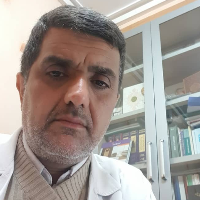The Effect of Logotherapy Based on Rumi’s Thoughts on Anxiety, Depression, and Distress in Frontline Nurses During the COVID-19 Pandemic
With the spread of infectious diseases, especially coronavirus disease 2019 (COVID-19), healthcare workers are vulnerable to mental health problems. Culture-based interventions in such critical situations are highly effective for the individuals in that cultural context.
The current study aimed to investigate the effect of Logotherapy Based on Rumi’s Thoughts (LBRT) on depression, anxiety, and distress in frontline nurses during the COVID-19 pandemic.
The present study employed a quasi-experimental controlled pre-test-post-test design with a 2-month follow-up. This interventional study was conducted on frontline nurses during the COVID-19 pandemic 2020. Imam Khomeini and Fatemeh Zahra hospitals were selected as the research samples, as they were the main educational and medical centers of Mazandaran University of Medical Sciences, Mazandaran, Iran, and provincial referral centers. A total of 32 eligible individuals were selected for experimental (n = 16) and control (n = 16) groups through the convenience sampling method. The data were collected using the Impact of Event Scale-Revised and the Hospital Anxiety and Depression Scale. Logotherapy Based on Rumi’s Thoughts included eight sessions of 90 minutes. The control group did not receive any intervention during the study. The data were analyzed using repeated-measures one-way analysis of variance (ANOVA).
The results revealed a statistically significant difference between the two groups. The intervention group exhibited lower levels of depression and anxiety among the frontline nurses at the post-test and 2-month follow-up than the control group (P < 0.001). However, there was no significant difference between the two groups in terms of distress at the post-test and 2-month follow-up (P > 0.05).
The findings showed that LBRT improved anxiety and depression among frontline nurses during the COVID-19 pandemic. However, this intervention did not significantly affect frontline nurses’ distress during the COVID-19 crisis. Further studies should examine the effectiveness of culture-based interventions in critical situations.
-
The Impact of Embryo Donation Technology on Child Psychological Adjustment and parenting styles: A Comparative Study
Mahya Kaveh, Seyed Hamzeh Hosseini *, Hamid Sharif Nia, Sepideh Peyvandi
International Journal Of Fertility and Sterility, Jan -Mar 2025 -
A Scoping Review on the Use of Rumi’s Allegories and Metaphors in Psychotherapy
Faeze Alipour, Asghar Norouzi, Seyed Hamzeh Hosseini
Iranian Journal of Psychiatry and Behavioral Sciences, Jun 2024



